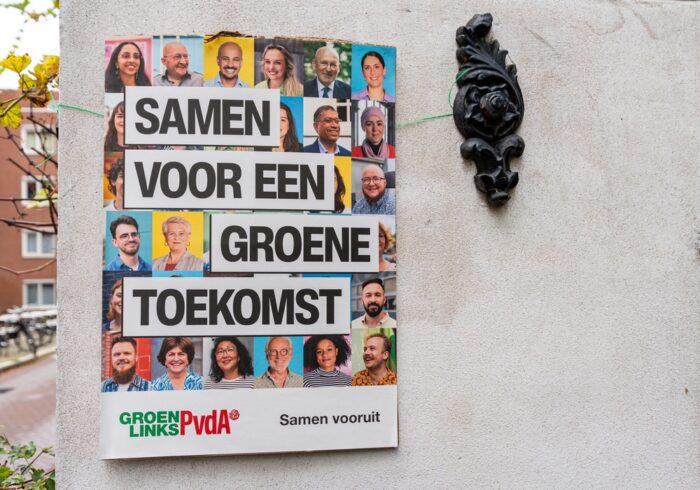The Progressive Post
The elections in Bulgaria for the Socialist Party: optimism, but conditional one

The elections in Bulgaria on October 27 brought moderate growth for the Socialist Party, which, for the first time in a long time, managed to stop its electoral collapse. The legacy of ideological wanderings and internal conflicts, as well as the general crisis of the party system, hardly encourages greater expectations. But the new broad left coalition needs much more active actions if it wants to impose its agenda in Bulgarian politics.
The Bulgarian Socialist Party (BSP) took fifth place in the seventh consecutive parliamentary elections in Bulgaria for a period of only 3 and a half years. The endless election cycle, caused by the inability of the major parties to find a formula for a stable government, has generated public distrust not in one party or another, but in the entire party system. It is very difficult for the regular participants in the electoral process, among which is BSP, to be perceived as bearers of an alternative in the political crisis.
At the same time, the BSP was faced with a second unfavourable circumstance – the legacy of its long-time leader, Kornelia Ninova. Under Ninova’s leadership since 2017, BSP experienced a genuine electoral collapse, losing every five out of six of its supporters and shrinking to an unenviable 151,560 votes in the June elections this year. There are various reasons for this. Some of them are ideological. The party bet on the so-called left conservatism and tried unsuccessfully to copy the messages of the national populists. Other reasons are political. Ninova decided to enter into an open conflict with the president nominated by the party itself, Rumen Radev, who is also the most popular politician in the country. The isolation was also deepened by the party’s enmity with the vast majority of other left and progressive political parties and organizations, as well as with the trade unions. We should also mention the internal party reasons. Ninova had been waging a consistent struggle with political figures and local structures that had questioned the party’s public behaviour.
Against this background, the October 27 elections were the first in the period of the new political crisis, in which BSP ran with a new, albeit temporary, leadership with Atanas Zafirov at the head. After intensive negotiations, the largest left coalition in Bulgarian history was formed, which included more than 15 left parties and adopted the name “BSP – United Left”. A 100-point program was also approved, realistically aimed at overcoming inequalities and poverty and supporting the most vulnerable groups, although without the claims of some pathbreaking manifesto. The result ended up being 184,403 voters, or an increase of just over 30,000 votes compared to June. In terms of the geography of the vote, the growth is almost evenly distributed across all areas of the country. One can hardly identify any single specific factor to explain it.
What did BSP succeed in? First, the enormous difficulties that former leader Kornelia Ninova and her entourage created for the party before and during the campaign were overcome – legal disputes, media attacks, encouraged departure of party members. There was no split that would undermine the chances of a decent electoral performance. However, the disorientation and confusion of many socialists from these public actions cannot be underestimated. Second, the broad left coalition worked and proved to be an effective campaign tool. The expectations of conflicts and tensions between the candidates of the separate parties in the common lists did not materialize. Third, BSP began to sound much more cooperative in the public space. Positive signals were sent both to the president and to other organizations, but mostly to the European partners of the socialists, with whom until that moment Ninova was waging a fierce war from conservative positions. Fourth, we witnessed the revival of local party structures, which have shown far greater activity than in previous years. One of the big problems of the party, related to the gradual decline of the organized internal party life, has not been solved, but at least has not been deepened. And fifth, for the first time in many years, BSP brought to the fore, and in key districts such as the capital Sofia, new faces from its youth structure. In the context of the serious ageing of the membership and the overall public image of the socialist party, as an organization turned to the past, this can undoubtedly be assessed as a positive step.
But what did BSP fail in? There are objective explanations that do not depend on the goodwill of the party leadership. Above all, it is about the “time” factor. Disputes surrounding the court registration of the party, negotiations for the coalition and other obstacles of an administrative nature ended only a month and a half before the actual vote. Weeks of effective campaigning apparently did not suffice to establish the new coalition as a political entity with a different profile, nor to promote its platform sufficiently. It should also be borne in mind that, traditionally, the leading mass media in Bulgaria are not favourably disposed towards the left space and are not inclined to assist in its strengthening. Subjective factors should also be mentioned. First, BSP did not manage to impose its social rhetoric on the agenda of the election campaign. This agenda was occupied by topics related to the scandals and conflicts between the main right-liberal and right-conservative parties, as well as the split in the party representing the Turkish minority. It is paradoxical that Bulgaria, the country with the lowest standard and the highest inequalities in the EU, does not put a priority focus on social issues.
Second, the data from the exit polls indicate that the BSP did not go beyond the niche of its traditional supporters – the older population, smaller town inhabitants, those biographically connected to the left. Some of these voters returned to BSP after the disappointments in Ninova, but a serious breakthrough for the young, active population has not been accomplished. And third, BSP failed to point out a way out of the political crisis. This, of course, is not an easy task. However, a party that does not commit itself to precisely this task risks remaining marginalized in discussions about the future of governance and society.
For BSP and the new coalition, October 27 is definitely not a failure. Nor is it a stunning success. If certain practices are continued, and if of course the party moves forward much bolder, with new faces, with new behavior, with new approaches to the public, further positive development is quite possible.




